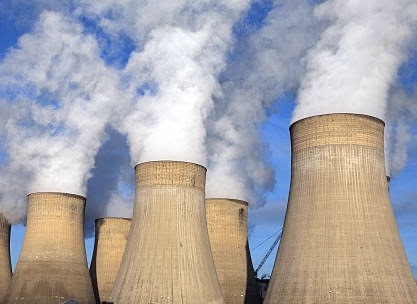KEY POINTS
- Africa’s coal power plants face transition pressure from climate goals.
- Coal power provides energy security but faces economic challenges.
- African nations explore renewable energy strategies for a just transition.
Coal power has long played a crucial role in Africa’s energy landscape, especially in South Africa, Zimbabwe, and Botswana. South Africa alone generates about 80% of its electricity from coal, providing stability in a region where energy access remains a challenge (IEA, 2022). The African Development Bank (AfDB, 2023) emphasizes that coal power ensures energy security for millions, helping address energy poverty and supporting industry needs.
Beyond energy access, coal power generates thousands of jobs and substantial government revenue. In South Africa, for example, over 90,000 jobs are directly tied to the coal sector (South African Institute of International Affairs, 2023). For these countries, coal power not only meets immediate energy demands but also sustains local economies, making a sudden shift to renewables challenging.
Global and local pressures to reduce coal power dependence
Despite coal’s contributions, African nations face pressure to transition to cleaner energy sources. The Paris Agreement commitments require reduced coal reliance to limit global warming, adding pressure on coal-dependent countries (UNFCCC, 2015). Additionally, international funding bodies like the World Bank are reducing support for coal projects, directing funds toward renewables (World Bank, 2023).
Locally, initiatives like the Just Energy Transition Partnership (JETP) aim to help South Africa phase out coal power through financial and technical assistance (Presidency of South Africa, 2021). These initiatives acknowledge that a sudden coal phase-out could destabilize coal-dependent communities. Health and environmental concerns also fuel this shift, with Greenpeace Africa documenting coal-related health impacts, including respiratory conditions linked to pollution (Greenpeace Africa, 2022).
Strategies for a just transition to renewable energy in Africa
Transitioning to renewable energy presents complex challenges. Many African power grids are not equipped to handle decentralized, renewable sources (IRENA, 2022). Additionally, coal remains financially viable due to existing infrastructure, while financing for renewables is still limited (AfDB, 2023).
To address these challenges, African nations are adopting various strategies. The African Renewable Energy Initiative (AREI), led by the African Union, promotes renewable projects across the continent (African Union, 2022). Meanwhile, the International Labour Organization (ILO, 2023) is supporting worker retraining programs, helping coal-dependent communities transition to alternative industries like renewable energy. By combining policy, partnerships, and community support, African countries aim to balance energy needs with sustainable, climate-resilient practices.



